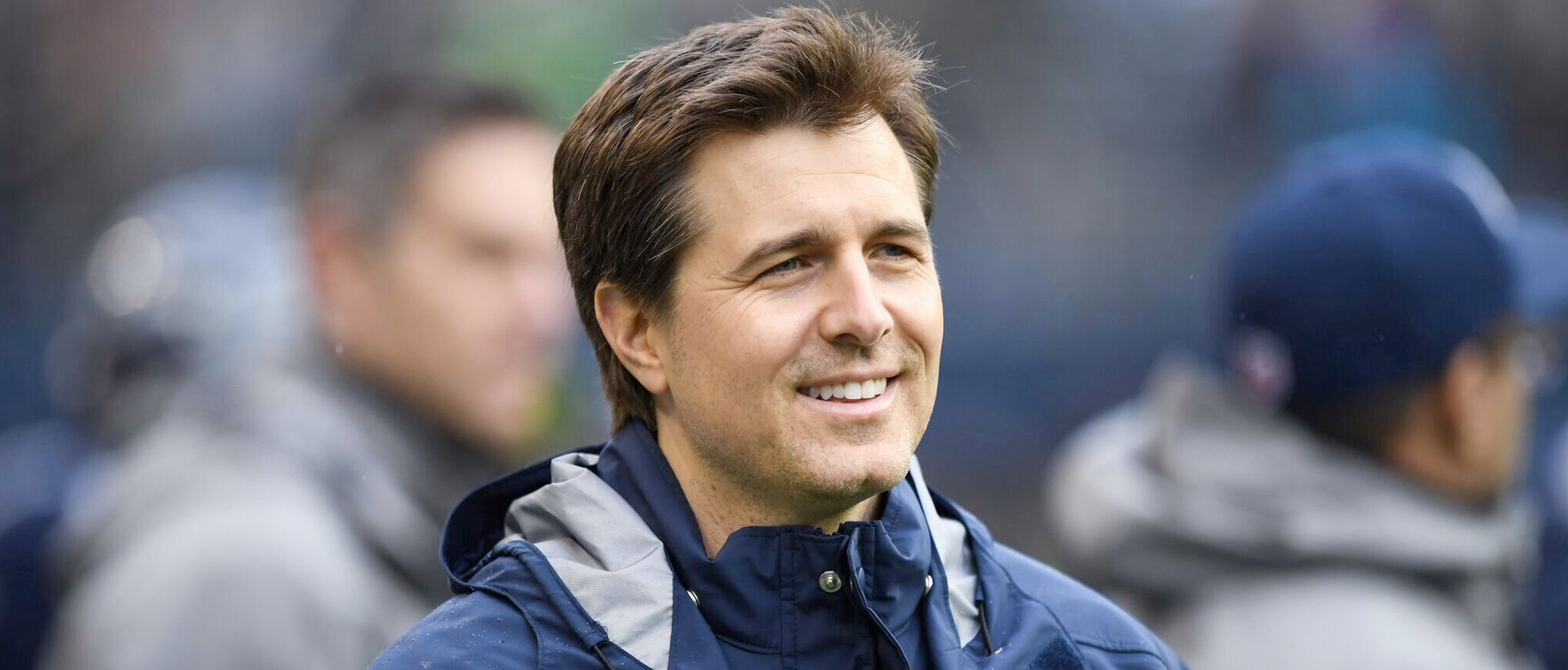

High-performance psychologist Dr. Michael Gervais has dedicated his career to exploring how to push the boundaries of human potential. His clients include Olympians and Fortune 100 CEOs. As the host of the Finding Mastery podcast he interviews world-leading professionals taking their fields to the edge.
Dr. Gervais works in high-stakes environments with some of the world’s top-performing athletes and businesspeople. He is known for his work on the Red Bull Stratos project, where he helped Felix Baumgartner overcome the anxiety and claustrophobia felt when he pulled on his jumps suit to make the history-making leap from 128,000 feet. Meditation, mindfulness and team-building techniques introduced by Dr. Gervais are credited by Seattle Seahawks coach Pete Carroll as being key to his team’s 2014 Super Bowl win. Carroll and Dr. Gervais continue to work together as co-founders of Compete to Create, a digital platform helping people become their best through mindset training. Here, Dr. Gervais shares insights gleaned from working with the best in the world.
While we haven’t yet found a golden thread among world-leading performers, there are a set of common traits. One is that they are incredibly aware of their inner experience, and have a rich command of their craft. We’ve found that they are aware of their thoughts, their emotions, their sensations and the unfolding environment in a world-class way. They have the ability to course correct when their actions, thoughts, or even words are not aligned with their mission.
We’ve learned that the world’s best run to the edge of their physical, technical and emotional capacities and they recover in a world-class way. They fundamentally organize their life to find the edges of their limits every day. At the edge of our limits is the unpredictable unknown, the razor’s edge. For many people, that unknown is met with uncertainty about having the skills to meet those demands. That creates so much anxiety that they revert to something that is more comfortable – staying inside their known world. And that is the most beautiful recipe for average. The recipe for extraordinary is to run to the edge of capacities and then recover. Ancient traditions and all the world’s religions teach us that the present moment is by definition unfolding, unpredictable, and unknown. So living in the present moment is actually the antidote to strengthen one’s ability to deal with the unknown. And that is where mindset training and mindfulness in particular, become a massive asset to those wanting to explore their potential.
There are only three things that we can train as humans. We can train our craft, we can train our body and we can train our mind.
Most people train their craft somewhere between 20 and 40 hours a week. Whether that’s in a traditional nine-to-five job or as a professional athlete. But for the majority, that’s just technical work. Then, say you run or do a gym session most days, that’s maybe five hours of training your body a week. But how much disciplined mental training do we do? Like just focusing on our breath, for example. It’s often not anywhere near that level.
To start with, 10 minutes of a day is a significant investment in mental training. Then eventually can we can get to an hour a day? That would be incredible, but it means adjusting our overall approach to work and training. As a bold prediction, in 15 years, we will not be training like we do now. We’ll be much more sophisticated about how to use the mind to enhance whatever it is that we’re doing.
Project Reconnect was a way to honor our coastal ancestors. For years I’ve had a view of Catalina Island off the coast of California. Hundreds of years ago, our ancestors came from the island to the mainland in canoes. They would make that 30-mile journey over rugged ocean to provide for loved ones. So this was a way to reconnect with primal times and the ocean, which is why the cause was ocean health, raising money for The Ocean Cleanup. The whole experience changed me. The target was six and a half hours. But we got caught in some currents and it ended up going eight and a half hours. It pushed me into places of loneliness, of mental exhaustion, while at the same time dealing with Mother Nature, which is relentless and unforgiving.
I’ve been formally training my mind for 20 years. And it’s not like one day you say, "I got it. I’m mentally tough and strong." It is a relentless approach to live in the present moment more often. And it’s especially hard to be fully present in tough conditions.
I was on the water five days a week. I worked with legendary extreme-athlete coach Peter Park and he structured the program for me. We all need to be coached. Nobody achieves anything alone. It’s always a community, a tribe, a support mechanism. Building that community is something we learn from the world’s best. It’s about organizing so that we’re deeply connected to highly skilled, highly passionate and caring people who will also challenge us.
One of the things I’m learning is that, if there are limits, we don’t know what they are. The future of human performance is yet to be written. And that points to some very deep inner ability we have to use imagination and to articulate a planning program that can get us close to the vision that we hold. We don’ know what the limits are and that’s the part that keeps surprising me.
For more insight from Dr. Michael Gervais, visit findingmastery.net. Subscribe to the Finding Mastery podcast on all major platforms to hear authentic conversations with world-leading thinkers and doers, discussing how they organize their lives and condition their minds to find their very best on a regular basis.